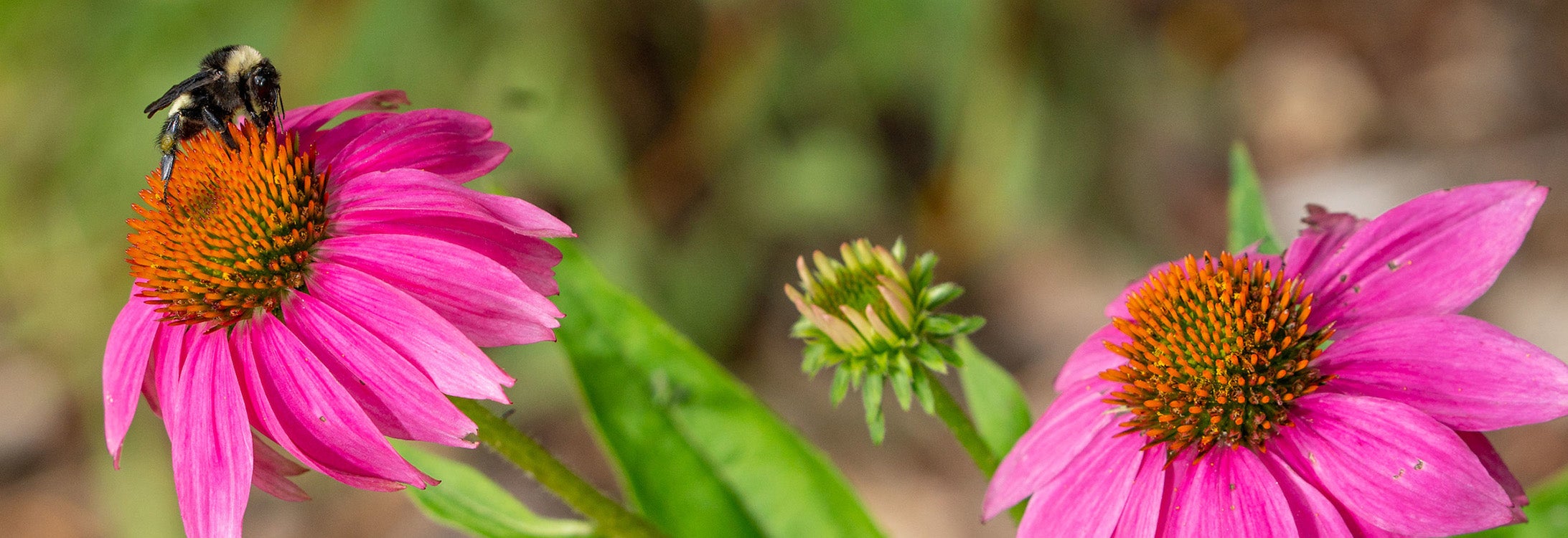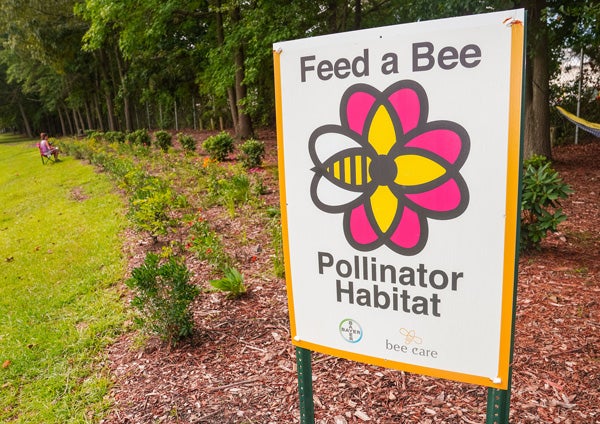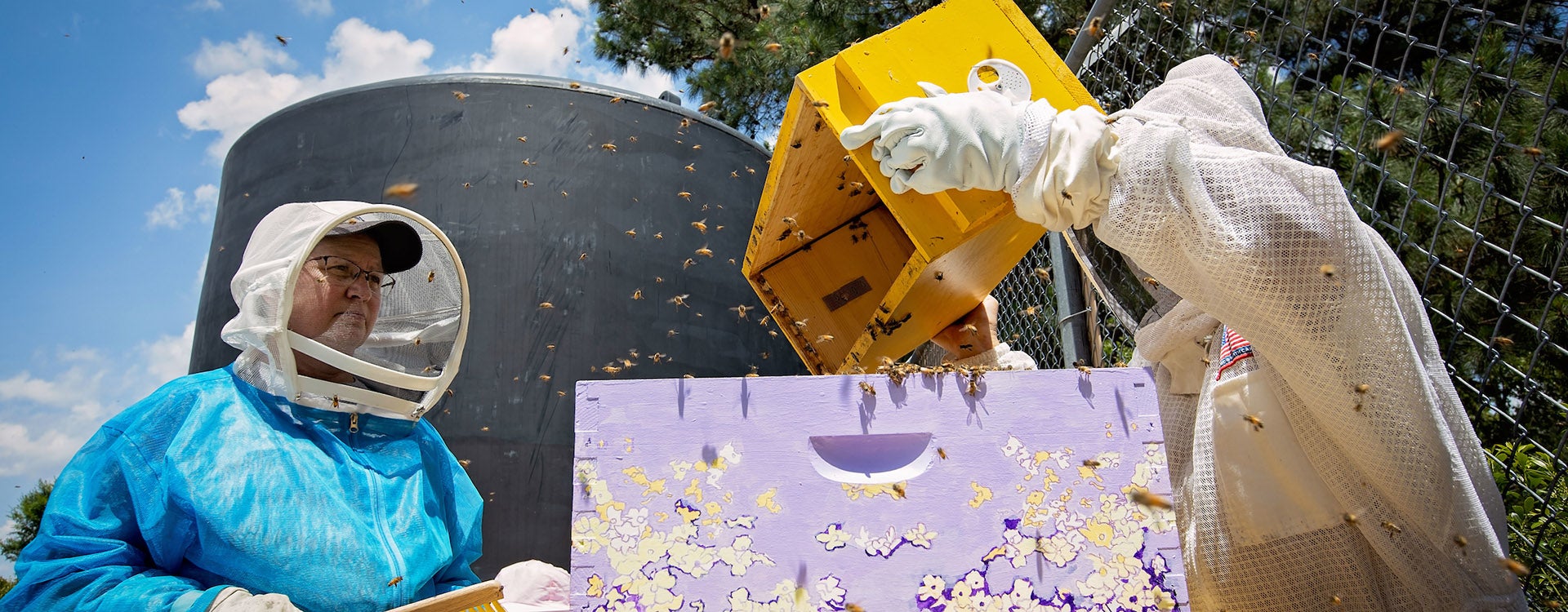WHAT WILL BEE
ECU certified by Bee Campus USA
East Carolina University has become the 77th educational institution in the nation to be certified as an affiliate of the Bee Campus USA program, designed to marshal the strengths of educational campuses for the benefit of pollinators. ECU joins more than 150 other cities and campuses across the country united in improving their landscapes for pollinators.
“College students, faculty, administrators and staff have long been among the nation’s most stalwart champions for sustainable environmental practices,” said Griffin Avin, chief sustainability officer. “We are very proud to continue this tradition here at ECU and lead by example in becoming the next Bee Campus USA.”
ECU has established a Bee Campus USA committee, developed a list of pollinator-friendly native plant species including blooming times and the local nurseries where these plants can be purchased, hosted a film screening and other awareness events, set up bee hives on the Health Sciences Campus, and posted signage to educate campus and the broader community, said Chad Carwein, sustainability manager for ECU.
Karen Mulcahy, teaching associate professor in the Department of Geography, Planning and Environment and an N.C. Journeyman beekeeper, takes pride in ECU’s commitment to establishing pollinator-friendly habitats as well as minimizing hazards to pollinators by using fewer toxic chemicals. To raise awareness about projects on campus, ECU has published a webpage to disseminate information such as ECU’s Integrated Pest Management Plan, links to student and faculty research into pollinator issues, and information about upcoming events.
Claudia Jolls, professor of biology, said the effort has created opportunities for student research and service learning. “Already faculty, staff and students have worked together to study and create pollinator habitat with native plants,” she said.
Bee City USA and Bee Campus USA are initiatives of the Xerces Society for Invertebrate Conservation, a nonprofit organization based in Portland, Oregon, with offices across the country. Bee City USA’s mission is to galvanize communities and campuses to sustain pollinators by providing them with healthy habitat, rich in a variety of native plants and free of pesticides. Pollinators like bumblebees, sweat bees, mason bees, honeybees, butterflies, moths, beetles, flies, hummingbirds and many others are responsible for the reproduction of almost 90% of the world’s flowering plant species and one in every three bites of food we consume.
“The program aspires to make people more PC – pollinator conscious, that is,” said Scott Hoffman Black, Xerces’ executive director. “If lots of individuals and communities begin planting native, pesticide-free flowering trees, shrubs and perennials, it will help to sustain many, many species of pollinators.”
According to Bee Campus USA founder Phyllis Stiles, “Each certified campus must renew their certification each year and report on accomplishments from the previous year. Other institutions of higher education are invited to explore completing the application process outlined at beecityusa.org.”
For more information about the ECU Bee Campus USA program, contact Carwein at 252-744-4190 or Mulcahy at 252-328-4991.
For more information about Bee Campus USA, visit https://www.beecityusa.org/. For more information about the Xerces Society, visit https://xerces.org/.


